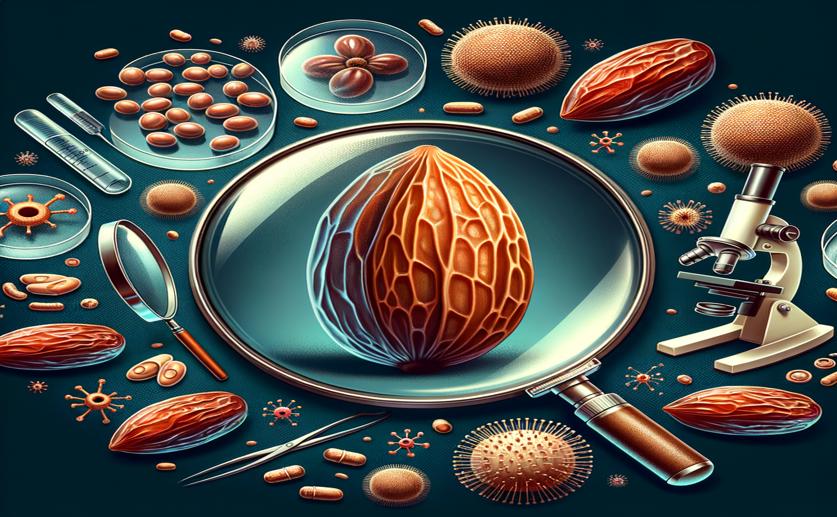
Exploring Date Seed Extract as a Triple-Threat Against Microbes and Viruses
Jim Crocker
12th May, 2024

Image Source: Natural Science News, 2024
Key Findings
- In a Suez Canal University study, date palm pit extracts showed potential as natural antimicrobial agents
- The extracts were effective against bacteria, fungi, and viruses, including inhibiting tough biofilms
- These findings suggest date palm pit extracts could enhance health products and combat resistant infections
References
Main Study
1) Antimicrobial, antibiofilm, and antiviral investigations using egyptian phoenix dactylifera L. pits extract.
Published 9th May, 2024
https://doi.org/10.1186/s13568-024-01695-3
Related Studies
2) Bioactivity and Pharmacological Potential of Date Palm (Phoenix dactylifera L.) Against Pandemic COVID-19: a Comprehensive Review.
3) Antifibrotic and tumor microenvironment modulating effect of date palm fruit (Phoenix dactylifera L.) extracts in pancreatic cancer.
4) Evaluation of date palm pollen (Phoenix dactylifera L.) encapsulation, impact on the nutritional and functional properties of fortified yoghurt.
5) Cefotaxime incorporated bimetallic silver-selenium nanoparticles: promising antimicrobial synergism, antibiofilm activity, and bacterial membrane leakage reaction mechanism.



 15th April, 2024 | Jenn Hoskins
15th April, 2024 | Jenn Hoskins